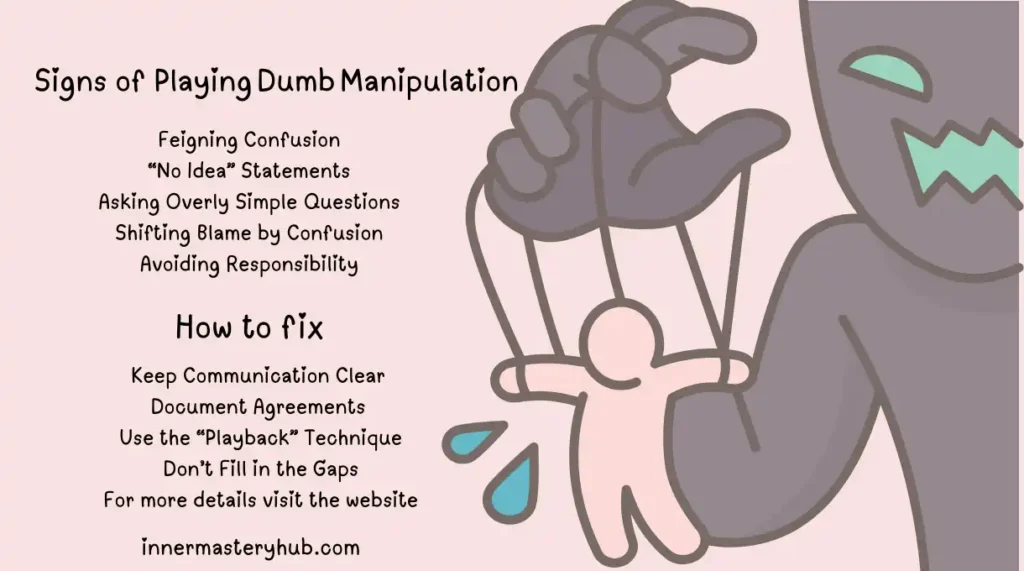13 Core Areas of Life To Work On For A Curious Mind’s Exploration

Fulfillment has never been more vital in a society that frequently seems chaotic and fast-paced. Establishing worthwhile objectives can serve as the compass that points us in the direction of a happier, more balanced lifestyle.
But where do we start? The path to fulfillment includes many areas of life, all of which need focus and deliberate action. The secret to living a fulfilled life is identifying achievable, specific areas where we can set meaningful objectives, ranging from relationships and health to financial stability, personal growth, and career goals.
How to figure out areas of life in which I need improvement
Although identifying the aspects of your life that require change can be challenging, it doesn’t have to be. I remember the beginning of this process. I didn’t know where to concentrate and felt trapped. I began by taking a moment to reflect in silence.
Taking out a notebook, I jotted down many areas of my life, including relationships, employment, interests, and health. Simply writing down my ideas allowed me to identify my areas of concern.
I was frequently under stress at work, for instance. I didn’t feel satisfied, and my work was depressing me. I realized that I had to change. As a result, I began asking myself questions. Did I love my job? In what way could I improve my mood? This enabled me to identify my career as an area that needs development.
I became aware that I was frequently under stress at work, for instance. I didn’t feel satisfied, and my work was depressing me. I realized that I had to change. As a result, I began asking myself questions. Did I love my job? In what way could I improve my mood? This enabled me to identify my career as an area that needs development.
And I looked at my health. I became aware that physical activity was not as frequent as I would have liked. I didn’t eat well because I was constantly worn out. I made a tiny decision to walk regularly. Even just 20 minutes of physical activity made a difference.
I asked a close friend for their feedback on what they thought I should do better in my life. She noted that, particularly in difficult situations, I appeared to shy away from some interactions. I realized that I needed to improve my interpersonal skills.
Finally, based on my findings, I have set some modest goals to update my résumé and explore new opportunities. My health goals were to cook better meals and drink more water. These easy objectives gave me a sense of control.
13 areas of life that demand measurable effort for personal growth
Indeed, examining our lives and identifying areas for improvement is often necessary to achieve balance and fulfillment. 15 areas to think and set goals about are as follows:
1. Physical Health & fitness goals
Your physical health is where you start to improve in other areas of a balanced life. Your mood and stamina can be improved by engaging in frequent exercises, such as a vigorous 30-minute walk every day. Staying hydrated and eating well-balanced meals are also very important. Imagine how much more energized you feel when you eat healthily and maintain an active lifestyle.
2. Mental Health
A healthy mind is essential. Engaging in stress-reduction practices daily, such as yoga or meditation, can lead to improvements in various areas of life. To concentrate on the good things in your life, it’s also beneficial to keep a gratitude journal. My friend began doing this and experienced a noticeable improvement in her mood.
3. Financial goals
The first step towards improving all areas of your life is careful financial handling. First, a budget must be created. Make a list of all your earnings and outlays to track your financial progress.
Understanding your spending patterns will help you create reasonable savings objectives. Try to save for major purchases, retirement, or emergencies. Learning about various investing possibilities is also a smart move if you want to increase your money.
A financial advisor can help you create an investment plan that suits your risk tolerance and long-term objectives. Using tools such as budgeting applications can also help you stay accountable and on course. These practices can eventually reduce financial stress and create a solid foundation.
4. Career Development
Making progress in your career is essential to improving other areas of your life. Establishing specific career goals that complement your interests and talents should be your first step.
To identify areas for expansion or new skills to acquire, ask mentors or coworkers for feedback if you’re unsure where to start. To stay updated on the marketplace and technological advancements, consider signing up for relevant workshops or courses that align with your interests.
Attending industry conferences and seminars or establishing connections with specialists in your sector via online platforms such as LinkedIn is another essential component. Being proactive in your career not only promotes professional development but also enhances job satisfaction and creates opportunities for better job positions and higher salaries.
5. Education and Learning
Constant learning is essential to human development and improves many areas of life. Maintaining your mental acuity and skills through education is vital in today’s ever-evolving world.
Professional development can include attending workshops, obtaining certificates that enhance your credentials, or enrolling in specialized courses relevant to your field of work.
Learning a new hobby, such as playing an instrument, learning a foreign language, or immersing yourself in digital arts, can enrich your life and potentially lead to new opportunities and friendships.
With the abundance of materials available through libraries, community institutions, and internet platforms, education is now within everyone’s reach.
6. Relationships with Family and Friends
Several aspects of social life are directly related to the quality of your relationships with friends and family. These connections offer a web of happiness, support, and community. These relationships are strengthened when one makes an effort to spend quality time with loved ones, whether it’s through a weekly meal with family, a coffee date with a buddy, or engaging in a common pastime.
A simple phone conversation or video chat can have a significant impact in today’s hectic environment. Keep in mind that the quality of the time spent together is more important than the amount. Building deeper, more meaningful relationships can be facilitated by sharing everyday experiences, celebrating life milestones, and offering support to one another during difficult times.

7. Romantic Relationships
A significant area of life that needs improvement is the investment in romantic relationships, which are essential for emotional stability and personal fulfillment. Regularly devoting time to your spouse can help maintain a lively and engaging relationship. To understand one another’s needs and settle disputes peacefully, open and honest communication is essential.
Simply leaving a heartfelt message or cooking a favorite meal might be an easy way to express gratitude. These actions provide a solid basis of intimacy and trust when paired with respect and encouragement for one another. By participating in shared activities, such as hobbies or travel, couples can strengthen their relationship and increase their level of pleasure by creating lasting memories and experiences together.
8. Home Environment
A well-organized and peaceful environment can enhance your overall physical and mental well-being and happiness. Decluttering your area is a good place to start because it makes cleaning easier and improves concentration.
Purchasing aesthetically beautiful and cozy furniture can help create a more welcoming space for rest and renewal. A space for reading or meditation, indoor plants, or soft lighting are a few examples of features that can help you unwind. Frequent improvements, such as new paint or décor, can also breathe new life into your room and help it feel more in line with your needs and personal preferences.
9. Spiritual Well-being
Spiritual goals prioritize inner peace. This can include secular techniques that promote inner calm and mindfulness, like yoga or meditation, or it can entail religiously inspired practices.
Spending time in nature, whether hiking in the woods or walking along the beach, helps many people reestablish a connection with both the outside world and themselves. Regularly practicing these techniques can promote serenity, clarity, and resilience in the face of stress. Additionally, taking part in spiritual events or communal religious services helps strengthen one’s sense of purpose and belonging.
10. Social Connections
Because connections to others offer support, happiness, and a sense of belonging, they can act as a catalyst for improvements in all areas of life. Increasing your social network might be especially enlightening.
By enrolling in classes, clubs, or groups that interest you, you can meet new individuals who have similar interests. This might be anything from a volunteer organization or local sports team to a book club or culinary class.
Participating in career-related networking events is also beneficial for developing business relationships that may open doors in the future. In both personal and professional spheres, regular engagement with a diverse group of people can foster personal growth and provide a network of support.
11. Recreation goals
Engaging in recreational activities is an excellent way to enhance various aspects of life, bringing happiness and reducing stress levels. Playing sports, reading a good book, or using your imagination to paint or craft are all healthy ways to release tension and have fun. You can meet new people who share your hobbies by enrolling in painting lessons or playing soccer in the neighborhood.
12. Volunteering and Community Service
Participating in volunteer work and community service can significantly enhance various areas of your life. They give your life meaning and fulfillment, which enhances it.
Participating in community beautification projects, teaching skills to impoverished children, or volunteering at a local food bank are all examples of how giving back to the community creates a network of support and compassion. This involvement not only aids those in need but also fosters perspective and personal growth, strengthening sentiments of gratitude and interpersonal connection.
13. Self-care
Self-care is a vital habit that can significantly enhance various aspects of life by maintaining one’s physical and emotional well-being. It entails engaging in physical and spiritually nourishing activities, such as visiting the spa, reading for pleasure, or simply getting more rest.
Consistent self-care is an essential component of a balanced existence and is not selfish. Making time for self-care puts you in the best possible position to navigate life’s obstacles and interact constructively with those around you.
TAKEAWAY
A balanced and fulfilling life is the result of actively participating in various areas of your life, such as engaging in leisure activities, improving your physical surroundings, volunteering in the community, taking care of yourself, and managing your time efficiently.
In addition to improving personal well-being, each of these elements promotes a closer bond with the community and the larger world. Making these areas a priority can help you create a more fulfilling life.
A comprehensive approach to personal development is ensured by embracing these advancements in several areas of life, opening the door to long-term success and satisfaction.
The journey itself is just as essential as the destination, and every little step can lead to significant changes as we work to balance and improve our lives.
FAQS About Areas of life that demand measurable effort
1. What are the main areas of life?
The main areas of life typically encompass health, career, relationships, finances, spirituality, education, and leisure. Each area needs balance and measurable effort. Focusing on them helps you grow as a whole person, rather than improving only one part while ignoring the rest.
2. How many areas of life should I focus on?
Most experts suggest 12–13 life areas, but you don’t need to work on all at once. Focus on a few key areas most relevant right now. Over time, you can cycle through others, maintaining balance so that one area doesn’t grow at the expense of another.
3. Why is it important to know the areas of life?
Knowing the areas of life helps you see where you are thriving and where you’re struggling. It provides structure for setting goals, tracking progress, and making intentional changes. Without awareness, growth can be uneven, leaving essential parts of your life neglected or unfulfilled.
What are the 13 areas of life?
Thirteen areas of life often include: health, career, finances, family, friends, love, spirituality, personal growth, contribution, fun, learning, environment, and self-care. These categories cover nearly every aspect of living. Focusing on each ensures more balanced personal development and avoids neglecting essential parts of life.
5. How can I improve all areas of life?
Improving all areas starts with awareness. Write down each area, assess your satisfaction, then set small measurable goals. For example, exercising three times a week for health or saving a fixed amount for finances. Consistent effort, taken in small steps, builds long-term improvement across multiple life areas.
6. Which area of life is most important?
No single area is most important for everyone—it depends on values and circumstances. For some, health is paramount; for others, relationships or financial security take precedence. Ideally, balance matters most. Neglecting any one area too long creates stress that affects all the others over time.
7. How do areas of life affect happiness?
Happiness is linked to balance across life areas. Strong relationships bring joy, good health adds energy, financial stability reduces stress, and learning builds confidence. If one area is struggling, it can lower overall happiness. Working on all areas helps create a steady sense of fulfillment and a meaningful life.
8. Can I measure growth in life areas?
Yes, you can measure growth by setting clear goals in each area. For health, track workouts; for finances, measure savings; for relationships, notice quality time. Use journals, apps, or ratings (on a scale of 1–10). Tracking progress makes growth visible and keeps motivation high as you build momentum.
9. How do I set goals for different areas of life?
Start by identifying what matters most in each area. Then create SMART goals: specific, measurable, achievable, relevant, and time-bound. For example, “Read two books monthly” for learning or “Save $200 monthly” for finances. Clear goals make it easier to track progress and stay accountable.
10. What happens if I ignore some areas of life?
If you ignore areas of life, imbalance builds. For example, focusing only on a career may harm relationships or health. Neglecting finances may create stress even if you’re happy elsewhere. Over time, ignored areas demand attention. Balanced effort helps prevent burnout, regrets, or crises later.






